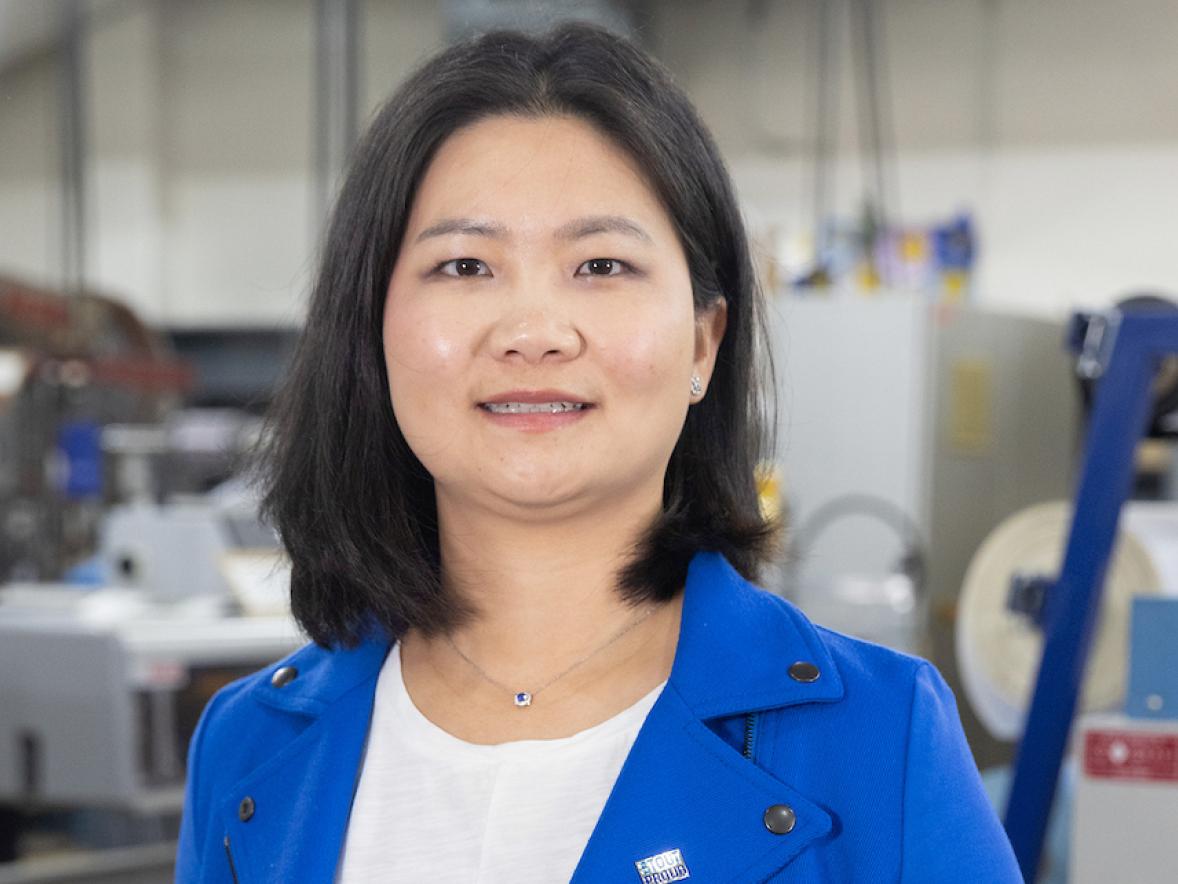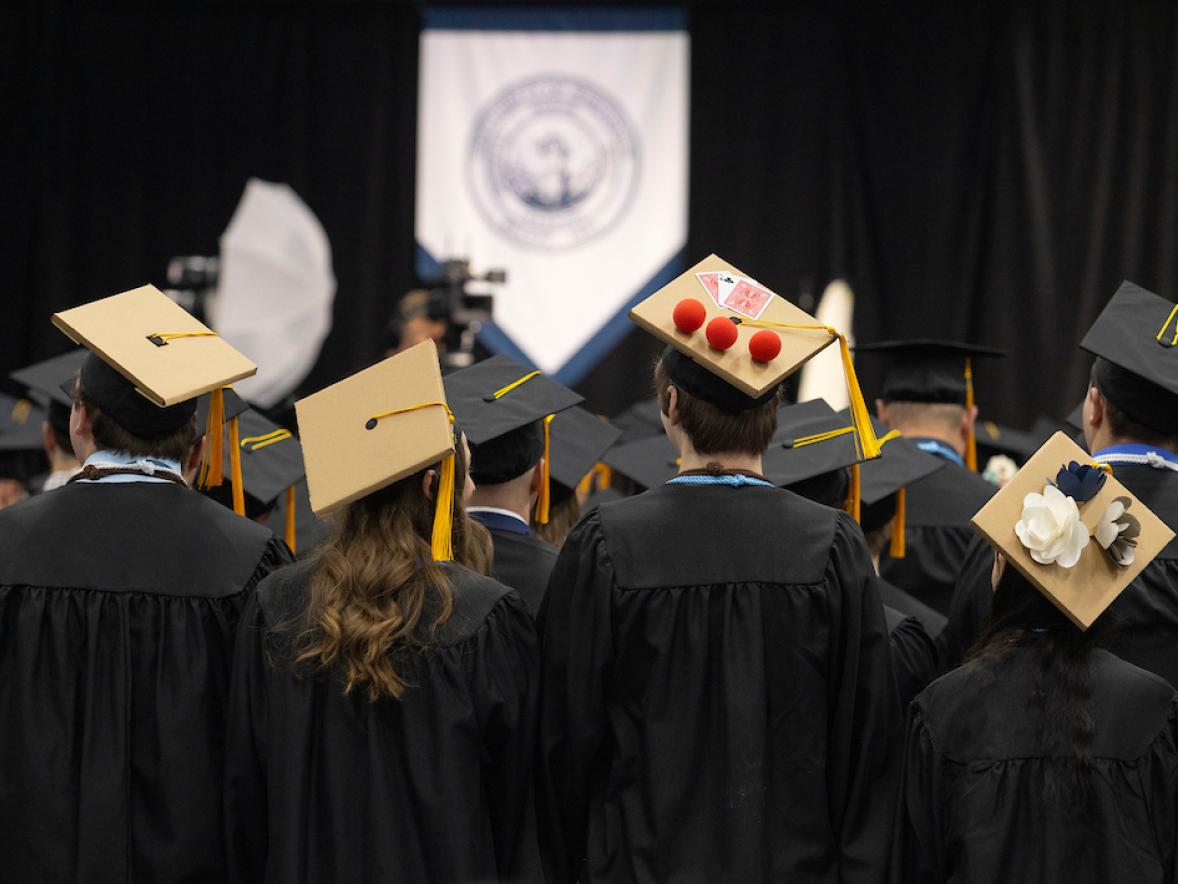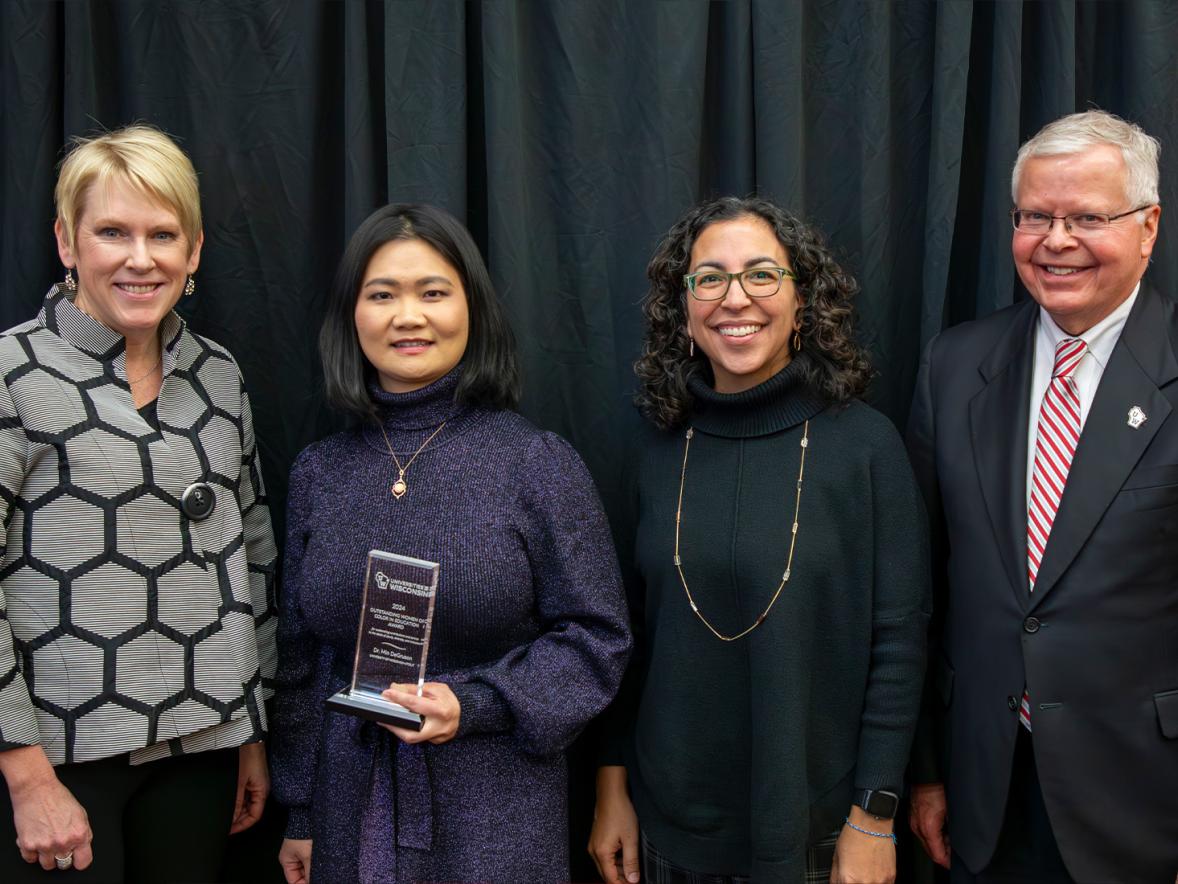Students in the manufacturing engineering, mechanical engineering and engineering technology programs at University of Wisconsin-Stout have some new opportunities to learn about their field, thanks to two corporations.
Two automated manufacturing cells were donated anonymously by a regional manufacturing company to UW-Stout and delivered recently to the Fryklund Hall Manufacturing Technology Lab.
The custom-designed pieces of robotic equipment, valued at $530,000, until recently were turning out plastic medical device parts at the Phillips Medisize facility in Menomonie.
Now, they will help students better understand high-tech manufacturing processes.
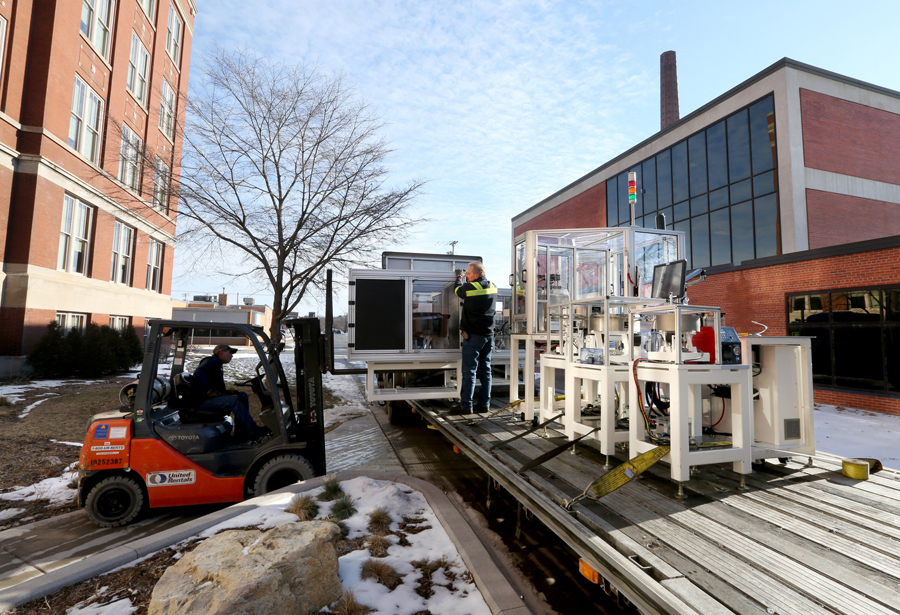
Students won’t just study the machines’ components and how they operate. They will delve into how the machines are designed so they can make similar automated production equipment in their senior design classes.
“We want our students to be the ones who design this equipment,” said Professor Tom Lacksonen, chair of the engineering and technology department. “Students can use these machines as examples of good design practice.”
The machines come with 1,000-page guides, which in addition to the value of their operating information will serve as object lessons for students: The guides will help them see the importance of documentation in machine design.
Lacksonen praised the donation because it upgrades the lab with fully-automated manufacturing equipment. “With all of the components working together, it’s higher state-of-the-art than anything else we have.”
Along with the more than 750 students in the manufacturing engineering, mechanical engineering and engineering technology majors, about 170 students in computer engineering also can study the new equipment.
One of the manufacturing cells is being reconfigured this spring by four students in an engineering capstone class taught by Professor Scott Springer. The students will program the machine to make a new product, a plastic keychain holder, that will be given away to campus visitors. The other cell is being set up as a teaching station for electronic and automation controls courses.
Phillips Medisize connection
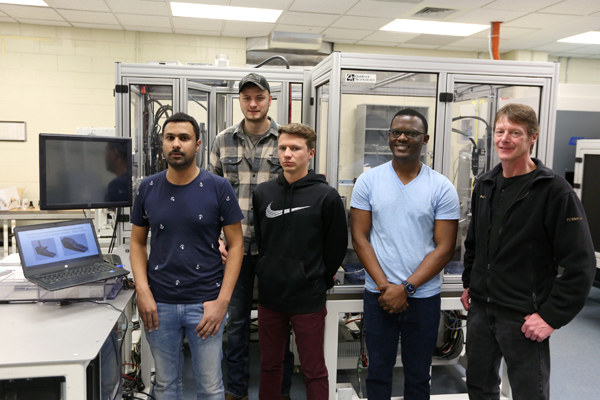 The equipment had produced millions of parts running 24 hours a day at Phillips Medisize. When the production line was set to be shut down, Vincent Reese, a strategic accounts manager, looked into the possibility of equipment’s owner donating it to UW-Stout.
The equipment had produced millions of parts running 24 hours a day at Phillips Medisize. When the production line was set to be shut down, Vincent Reese, a strategic accounts manager, looked into the possibility of equipment’s owner donating it to UW-Stout.
Reese had heard about UW-Stout’s new Robert F. Cervenka School of Engineering, dedicated last fall, which is named after the Phillips Medisize founder. “Once we learned the equipment wasn’t going to be used anymore, my suggestion was to look at the strong connection to UW-Stout,” said Reese, who works at the Phillips Medisize facility in New Richmond.
UW-Stout students will learn, for example, how the advanced equipment has built-in “escapes” for culling products on the production line that don’t meet specifications, Reese said.
Students could have an advantage down the road too. “It could make them stronger candidates for internships and jobs in the future with Phillips Medisize,” Reese said.
The Phillips Medisize engineer who had worked with the equipment, Lars Heggernes, is a UW-Stout graduate. Phillips Medisize employees disassembled the equipment for the move to campus.
The donation was coordinated through Stout University Foundation, which commended the in-kind contribution. “Industry partnerships substantially benefit the university and students every day. This donation will help students from a variety of disciplines learn modern technology and skills needed in the workplace,” said Michelle Dingwall, a senior development officer.
###
Photos
Manufacturing equipment is unloaded from a flatbed truck before being moved into Fryklund Hall, right. The robotic equipment was donated anonymously, with support from Phillips Medisize, for use by students in engineering labs.
Professor Scott Springer, right, with his engineering capstone students, from left, Saad Alyaqut, Ben Miner, Jared Anderson and Kefa Okoth.





